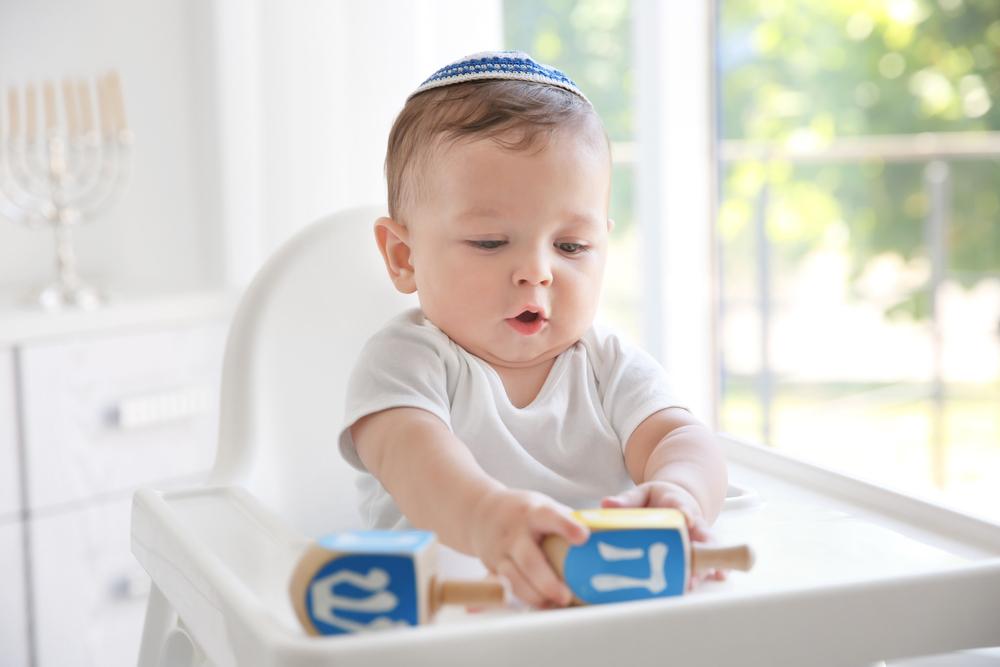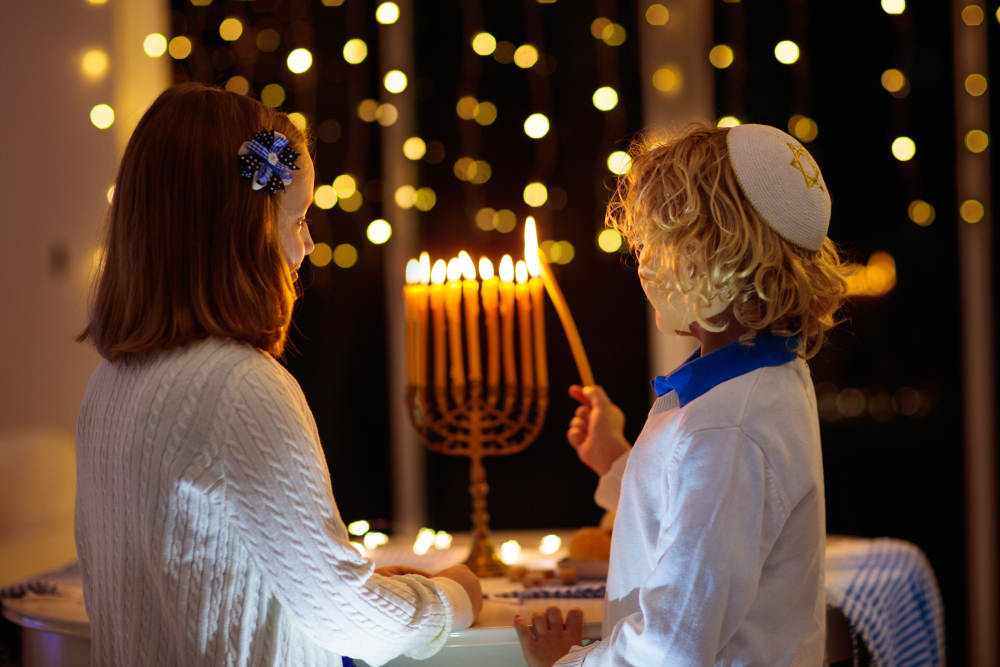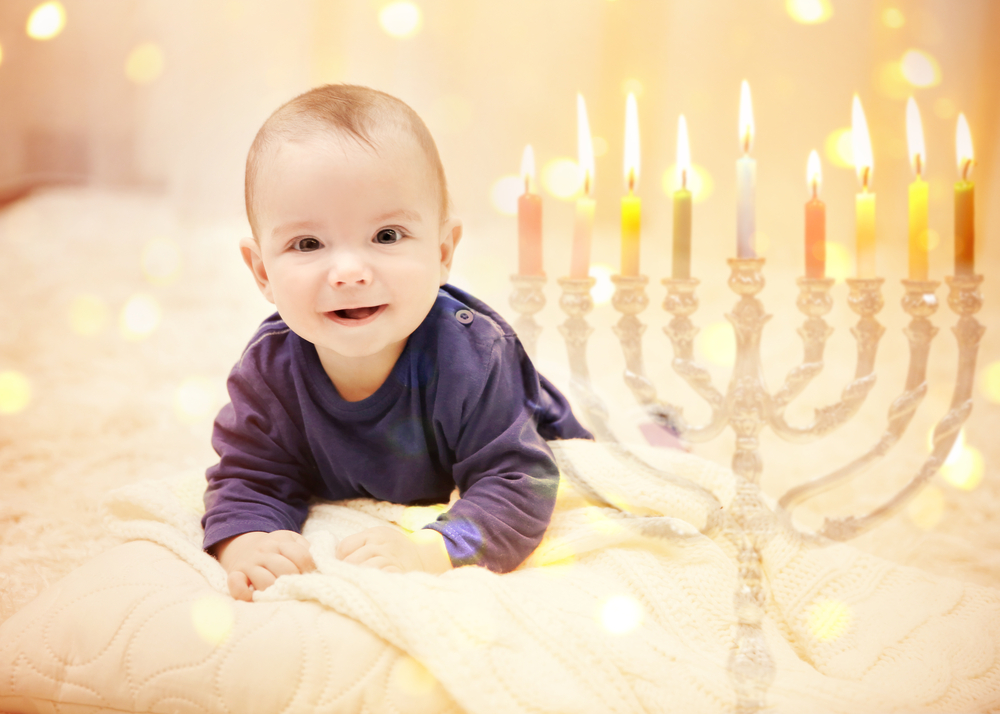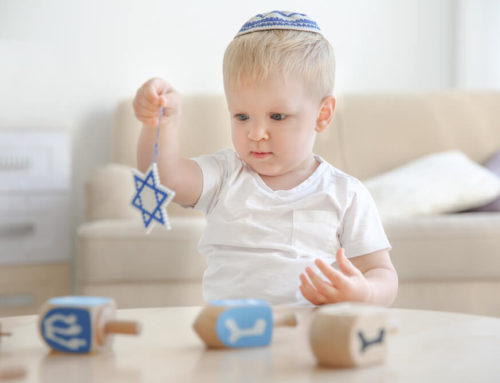If you’ve just had or expecting a baby, B’shaah Tovah or mazel tov!
No matter the case, you might have wondered about a few Jewish baby names and how to organize a fitting naming ceremony.
When it comes to the Jewish faith, most people will immediately think about the brit milah, but that only concerns around 50% of the Jewish baby population. This may lead many parents to wonder: how can they Jewsihly welcome baby girls and boys (who had been circumcised at the hospital) into the world?
This article will cover the basics of a thought-out naming ceremony, give a few great ideas regarding Jewish baby names, and discuss specific terms like the brit shalom, Simchat bat, and more.
And after reading the article, feel free to reach out to Dr. Krinsky if you are looking for the services of a mohel in Tamarac, FL.
So, without further ado, let’s get started!
The Jewish Baby Naming Ceremony
In short, this event is a Jewish ceremony usually held after a newborn’s birth and does not involve a brit milah or circumcision. Brit milah translates to “covenant of circumcision.” As such, the Jewish naming ceremony is just another way that aims to enter the newborn into the covenant between God and the followers of the faith without having to perform circumcision.
A naming ceremony may include several songs, rituals, and prayers. However, its primary aim is still to celebrate the baby’s birth, announce the baby’s name, and welcome the newborn into the Jewish community.
Jewish Baby Naming Ceremony Terms

When taking a closer look at these rituals and events, parents may find that they are almost spoiled with options as there are many different baby naming ceremonies. Some of these are gender-specific, while others are denominational.
Naming Ceremonies for Girls
- Simchat bat: This literally translates to “joy of the daughter,” usually used by Askheniza communities for girls’ naming ceremonies.
- Brit bat: this means “covenant of the daughter,” translated from Hebrew.
- Zeved Habat: This expression means the “gift of the daughter,” a Sephardic baby naming ritual. During this ceremony, rabbis are also present as the event usually occurs in a synagogue when the baby is no more than a month old.
Naming Ceremonies for Boys
- Brit ben: This is translated from Hebrew, meaning a “covenant of the son.”
Non-Gendered Ceremonies
- Brit tikkun: From Hebrews, meaning a “covenant of reparation.”
- Brit shalom: This means a “covenant of peace,” also from Hebrew.
- Brit chayim: meaning a “covenant of life” in Hebrew.
On the other hand, if all this feels overwhelming, parents are free to call the event simply “naming ceremony.”
Where Should the Ceremony Take Place?
The good news is that a proper ceremony for giving Jewish baby names can be held anywhere the parents want. Some parents opt to have the ceremony in a synagogue, while others choose to have it in the comfort and privacy of their homes. All parents will have to take care of is providing a few seats for elderly guests to sit. Since this isn’t a medical procedure like the brit milah, the options are much more relaxed.
When to Hold the Ceremony?
As you may know, the brit milah is usually held on the baby boy’s eighth day of life, and it can only be postponed if there are valid medical reasons behind it. Fortunately, there are no such strict rules when it comes to naming ceremonies, but there still are some biblical timeframes that parents should consider:
- When the baby becomes one-month old, which echoes the belief that a child is only viable after a month.
- After two weeks, which is the length of the mother’s ritual impurity after giving birth to a daughter.
- After 80 days, which is the same length, a woman in the Torah had to wait after giving birth to a girl to bring sacrifices to the Temple.
Still, because there are no strict rules to these ceremonies, parents are free to choose any date without regard to these timeframes.
Secrecy
Some parents may think that Jewish baby names should be kept a secret until the ceremony. Fortunately, this is not the case, but if parents consider a Hebrew name, they can choose to keep it private until the big event, but it’s up to them.
Choosing a Name and Ceremony Origins
Parents who have trouble finding a Hebrew name they like can always ask for a rabbi’s help recommending Jewish baby names. Also, there are great resources online.
As for the roots of the naming ceremony, some sources state that the first covenant for a girl dates back to 1973. Sure, there were other ways to celebrate the birth of Jewish baby girls before that as well. Still, the most prominent memories and descriptions of these ceremonies emerged around the same time when Jewish feminism managed to gain more ground.
The Ceremony Itself
How the ceremony will look is mostly up to the parents. Some of them will opt to have the Simchat bat or the bris at a synagogue with a rabbi, who will orchestrate the event with a prepared program. On the other hand, if parents choose to have the ceremony at a venue or home, they can celebrate any way they want. Blessings, speeches, and prayers are all welcome, and they can also wrap the newborn in the tallit to symbolize their faith and dedication.
Parents may also choose to have a naming ceremony instead of a bris when they don’t want the circumcision, or it has already been performed at the hospital.
Rituals During the Ceremony

During the event, the rabbi and the parents may perform several rituals, such as:
- Washing the baby’s feet. This symbolizes the welcoming of guests (think of Abraham in the bible).
- Wrapping the baby in the tallit or touching the baby’s lips to a sacred scroll, welcoming them into the covenant.
- Immersing the baby in the water aims to symbolize the mikveh.
As a parent, you can invite whoever you want to the ceremony; they don’t have to be of the Jewish faith. You can invite family and close friends if you want an intimate event, or you can choose to organize a party with numerous guests.
Lastly, let’s talk about food! To honor Jewish tradition, you can always have a nice selection of bagels, lox, and spreads, but you can opt for whatever foods you like.
Welcome Your Baby the Way You Want
As you can see, these ceremonies are quite relaxed and don’t have any strictly set rules like other Jewish ceremonies. Still, if you want to learn more about certain customs and traditions, it’s always a good idea to learn from an expert.
On that note, if you have any questions regarding the Simchat bat or the brit milah, feel free to reach out to Dr. Krinsky.







